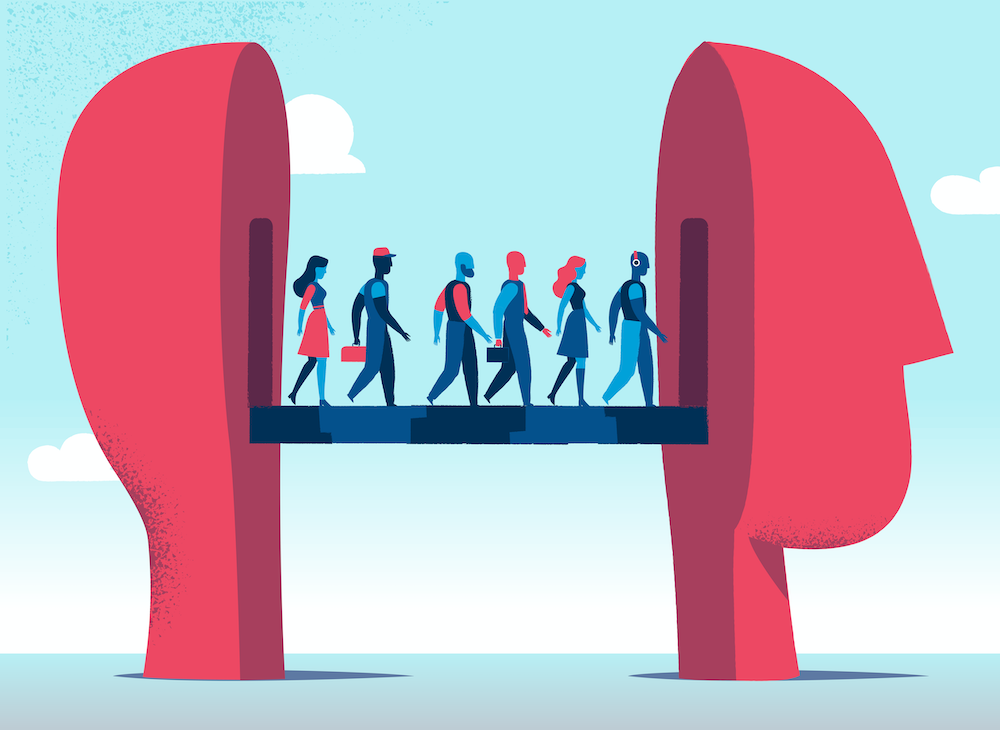Live to create memories, not regret
 Pic by Hurca! ? licensed via AdobeStock
Pic by Hurca! ? licensed via AdobeStock
Most memories fade, but regret lasts forever.
Wisdom is a curious virtue. It provides us clarity usually when it?s too late. Our most significant insight happens when we face the end of our lives.
Bronnie Ware knows this better than anyone else. The Australian nurse has been observing and recording the top regrets people have. After 12 years, she discovered a common theme.
?I wish I?d had the courage to live a life true to myself, not the life others expected of me.?
Among the top five, the number one regret was not having honored even a half of their dreams. When we look back, it?s easy to see how many dreams have gone unfulfilled.
Bob Dylan said it best, ?Take care of all your memories. For you cannot relive them.?
We are the stories we tell ourselves. But we can only tell stories about things we remember. The secret to avoiding regret is to create memories that will last forever.
You don?t have to choose between living a memorable or meaningful life. Happy memories need both.
Make your life last forever
?What?s something you?ve always wanted to do but haven?t? And why??
The above is one of the 36 questions that turn strangers into acquaintances.
That?s what research by psychologist Arthur Aron demonstrated. He brought together pairs of strangers who asked each other a series of increasingly personal questions.
Afterward, the pairs felt greater closeness than strangers who engaged in small talk. An article by NewYorkTimes.com made Aron?s work viral. People referer to them as the questions that can lead to love.
The ?36 questions? exercise is a quick way to get to know everyone ? not just your lover. I usually use them to accelerate team building. Collaboration increases when colleagues know each other well.
Aron?s study included three sets of questions.
The first set of questions provoke small talk. For example, ?Given the choice of anyone in the world, whom would you want as a dinner guest??
The second and third sets are more challenging. Some questions invite us to dig deeper.
What is the greatest accomplishment of your life?
What is your most treasured memory?
What is your most terrible memory?
If you knew that in one year you would die suddenly, would you change anything about the way you are now living? Why?
Beautiful questions are ambitious yet actionable. They shift the way we perceive something or ourselves., according to Warren Berger. The author of A Beautiful Question coined that term to refer to a catalyst that uncovers change and possibilities.
Asking beautiful questions helps you understand what matters to you. But you have to prioritize what you want.
In Essentialism, Greg McKeown suggests a system of ranking to help prioritize your life.
When facing a new opportunity, rank it on a scale of 1 to 10 based on how amazing you think it is. Only choose the ones that score high.
?If it?s not a nine or 10, then it?s a one,? says McKeown.
We need to differentiate between good things and those that create long-lasting memories. Prioritizing is a vital way to create lasting memories.
Revisit your priorities consistently.
McKeown suggests the Rule of Three. Every quarter, take three hours to identify your three priorities for the next three months. Don?t let busyness prevent you from living life mindfully. Or you?ll regret it when it?s too late.
Memories bring you back home
?Travel is not reward for working ? it?s homework for living?
Why are some memories stable over decades, while others fade within minutes?
Caltech researchers discovered that teams of neurons encode strong, stable memories. They all fire in synchrony, providing redundancy. Thus, enabling these memories to last forever.
Our brain is wired to turn events into familiar memories. But we can?t force the process.
That?s the irony about trying to make memories. We won?t know the value of a moment until it becomes a memory.
When we focus on making memories, we stop living. Instead of opening ourselves to life, we try to control the future. And not letting the present flow.
As Alice Morse Earle said,
?The clock is running. Make the most of today. Time waits for no man. Yesterday is history. Tomorrow is a mystery. Today is a gift. That?s why it is called the present.?
The paradox of creating long-lasting memories is that we must learn to live in the present.
Make the right choices. Learn to value what you have. The secret to happiness is appreciation. It?s about wanting what you have rather than having what you want.
Stop trying to create memories. Don?t force them. Also, avoid planning everything. Creating memories is not just about doing crazy things, but connecting to who you are.
Open your mind but don?t get distracted chasing the latest shiny object. You?ll end turning novelty into a routine.
Happy, long-lasting memories lie between discovery and familiarity. Sometimes you want novelty; sometimes you need to feel home.
When you are doing what you?re meant to be doing, you are in the best place you can be.
As Elizabeth Gilbert explains in this TED talk, your home is what you love more than yourself. For her, writing feels like being home. For me, is cooking for my wife or friends, while sharing a glass of red wine.
Where is your home?
Memories fade, but regret doesn?t
Long-term memory is a function of your brain where you remember something longer than a day or two. And often for many decades. These long-term memories are relatively permanent.
Episodic memories encompass specific events and the information related to an experience. They are pictures that stay with us forever, like the birth of a child.
But why do we remember specific episodes and forget others?
Scientists think there?s a reason why we forget.
Forgetting is adaptive. Sometimes we remember lots of details about an event. Emotionally significant events ? like accidents ? are remembered with more intensity than everyday activities.
Like old photographs, memories fade in quality over time. Research shows that they get less accurate and lose their color.
?A simple analogy is what happens when you post a photo on Instagram,? said Maureen Ritchey, a cognitive neuroscientist and author of the study. ?You?re cued to apply a filter that changes the brightness or color saturation of the image.?
Memories seem to literally fade. People consistently remembered scenes as being less vibrant than they experienced them.
?Memories, even bittersweet ones, are better than nothing.? ? Jennifer Armentrout
You might remember attending a concert or party. But the intensity of the sensory experience slowly fades. There?s a qualitative shift in the way we remember events.
Memories are fading pictures, but regret doesn?t go away.
We might forget a pleasant experience, but we don?t forget the missed opportunities. Not honoring our dreams creates a sour, long-lasting impact.
How to Create Long-Term Memories
1. Make it safe to try
Living an eventful life doesn?t mean experiencing constant thrills.
Beyond the Comfort and Danger Zones, lies the Learning Zone.
That?s where growth and happy memories happen.
Leaving your comfort zone doesn?t mean you must become an experience junkie. Seeking for every new thrill and sensation creates short-term effects, not long-lasting memories.
Everyone?s has their own comfort level. Stretch beyond yours. Live your life to impress yourself, not others.
2. Celebrate moments of pride
Do you remember your first job? Or the first time you won a match or game? Our achievements create unique emotional impressions.
Celebrating moments of pride creates more than happy memories. It?s also the fuel that motivates you to achieve more.
In The Power of Moments, the Heath brothers tell the story of a couple that celebrated fights. They looked back and remembered all the initial tensions they had. It made sense to celebrate how they overcame the obstacles.
What are your moments of pride? Every small victory is worth celebrating. Acknowledging your achievements turns them into a long-lasting memory.
3. Create moments of elevation
Moments of elevation are experiences that rise above our routine. They make us feel engaged, joyful, amazed, and motivated.
The Seth Brothers encourage us to create moments of elevation.
Raise the stakes by competing in a sporting event rather than watching it. Boost your sensory appeal by attending live concerts, visiting a museum, or trying new foods.
Break the script. Stretch your mind by doing different things or doing things differently.
Research shows that when older people reflect on their lives, most of what they remember happened between ages 15 and 30. We tend to live on autopilot ? time and events blur when nothing meaningful happens.
Neuroscientist David Eagleman says that when you inject novelty into your life, you prevent the blur. When we pay attention or do something new, time slows down.
4. Balance new and familiar experiences
Explore life. Take that turn, don?t overthink decisions. But remember to return where it feels like home.
Discovering new restaurants is exciting. But your go-to dining place can create long-lasting memories too. Familiar doesn?t have to mean boring. How we do things can turn them into a memorable experience, or not.
Don?t get obsessed about creating memories. Crafting happy, long-lasting ones is not about Instagramming everything you see or do. But to live experiences that will make your life richer.
As Andy Goldsworthy said, ?A stone is ingrained with geological and historical memories.? Happy memories include both novel and familiar experiences.
5. Turn struggle into happy memories
It?s not what happened but how it ended that matters. We remember a story, not the whole event.
Struggling makes us feel closer to other people. Anthropologist Dimitris Xygalatas found that groups that struggle together grow together.
When Oliver Poon passed away at age 3, his parents donated his fund to the place he loved the most: the Chicago Public Library. In return, they asked for a commemorative plaque but got much more.
The Opie Food Truck has become a major attraction at the children?s library. But also a happy memory for his family. It?s a peaceful memory to see so many children playing in this tribute to ?Opie? while having a plastic taco or pizza slice.
6. Relive your memories
Sharing and reliving memories help keep experiences alive.
Researchers from Johns Hopkins University developed a new theory about how we store memories.
Memories are transformed each time we visit them. A memory is first encoded by a group of neurons. Each time we recall it, we activate a similar, but not identical set of neurons.
Where we store our memories in our brain, matters more than its age or type.
Neurons that are frequently activated become part of the permanent memory trace. By reliving them, we turn happy memories into long-lasting ones.
7. Live the way you want to be remembered
What?s your life purpose? What?s the impact you want to create in the world?
And by the world, I mean those around you. You don?t need to be Gandhi to make the world a better place.
I?m not saying, ?seize the day.? But encouraging you to live your life with a purpose. Live without regrets.
The exercise of writing your obituary is a powerful way to create a memorable life backward. Define how you want to be remembered. And live your life honoring your (future) obituary.
Regret is the worst memory you can have
Memories make life more meaningful. Life is all about balance. We need both meaningful and memorable experiences.
Sometimes we choose, other times memories choose us.
Rumi said it best, ?What I want also wants me, is looking for me and attracting me.?
Create memories worth remembering. Live your life as you want to be remembered. Happy memories last forever; don?t make room for regret.
Gustavo Razzetti is a change facilitator who helps leaders and teams drive positive change. He advises, writes, and speaks on personal growth, team development, and culture transformation.
This article was originally published on Liberationist blog.


